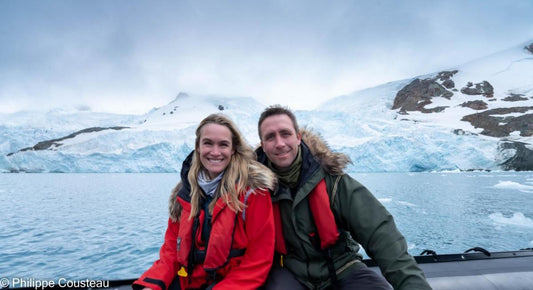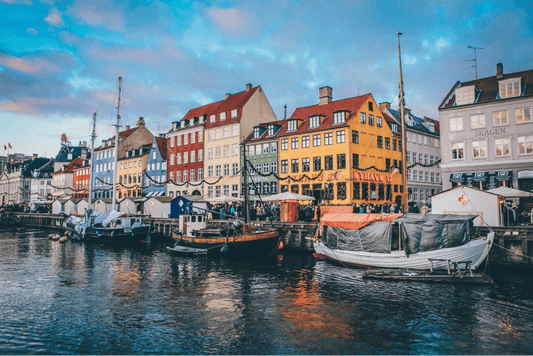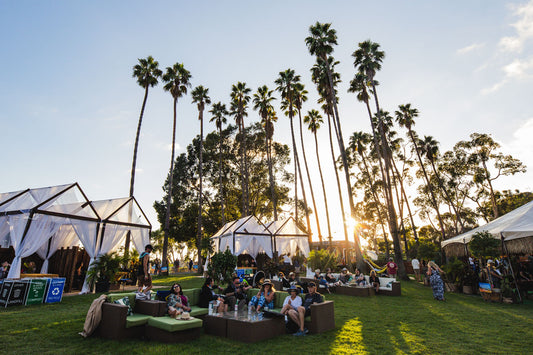SeaVoir.com: Hey Philippe! This past month, you were invited to speak at the Global Impact Investing Forum. What exactly is this event, and why is it so crucial to increasing widespread involvement in climate-conscious economic fields?
Philippe Cousteau: Well, for starters, the Global Impact Investing Network (GIIN) Impact Forum is a yearly conference held in Copenhagen that is primarily focused on impact investing. So there’s a lot of fantastic networking opportunities with a diverse range of people, from economic sectors to specialists in climate avocation, all of whom really challenge your thinking. There’s also interactive sessions, one of which I was invited to speak on, which makes it quite engaging. It's a unique gathering in that sense.
SV: What did you get the chance to speak about in one of these breakout sessions?
PC: Alongside my co-presenters Karen Sack and Ted Janulis, I highlighted the economic potential and developmental opportunities that come from safeguarding our oceans and marine life, which is especially crucial for communities along coastlines in the Global South who are impacted the most by increasing climate instability.
By channeling investments into these initiatives, investors can play a key role in fostering the growth of sustainable and responsible ocean-related industries, all while reaping financial benefits. Moreover, by actively contributing to the conservation of the ocean and its biodiversity, investors are contributing to the long-term preservation of these essential resources for future generations.
It's a dual-pronged opportunity where we can make positive financial and environmental impacts simultaneously.
SV: So it’s essentially a win-win situation for potential investors?
PC: Exactly. By investing in these safeguarding and innovative projects now, people have the opportunity to essentially jump ahead of the curve to both secure themselves financially and be a part of impactful solutions in the near future.
Stuff like that is one of the primary reasonsI love getting the opportunity to speak at events like the GIIN Impact Forum: to explain to people that a thriving and profitable restorative blue economy and the safeguarding of our ocean planet aren’t actually at odds with one another. In fact, they are essential to one another.
SV: We hear a lot of people today mention “the blue economy,” sometimes in relation to solutions like the ones presented at the Impact Forum, but also sometimes in relation to pollutive economic ventures like fracking and over-fishing. What exactly is the distinction between the former term and what you described as the “restorative blue economy,” above?
That’s an important distinction to make. The term “blue economy” today can mean a whole lot of different things, and, like you said, can actually be used to describe practices that are super harmful to our oceans’ health. By contrast, the Restorative Blue Economy is a concept that focuses on using ocean resources in a way that supports both economic development and ecological well-being.
It's all about sustainable and regenerative practices that aim to protect and restore marine ecosystems while also promoting economic growth, particularly for coastal communities. This includes things like responsible fisheries management, marine conservation efforts, renewable energy projects utilizing the ocean, eco-tourism, and the development of technologies that contribute to the health of marine ecosystems.
For example, Ashlan and I’s company, SeaVoir, is actually entering this economic sector now, with entirely algae-based Omega 3 supplements that serve as an essential alternative to the usual process of Fish Oil-based Omega 3 production, which is incredibly destructive to the health of our Southern Ocean. In addition to being entirely climate positive, algae-based Omega 3s have been shown to be actually better for our bodies than fish/krill alternatives, which, again, goes to show that investments in the restorative blue economy will not only lead to preservation and restoration of our oceans, but also innovative solutions and products that are far better than harmful alternatives.
SV: Thanks for the detailed clarification. Last question, what did you see made the biggest impression on the audience?
PC: To be a bit more concise, both during and after the breakout session, it was really inspiring to see how many people were excited by the prospect of investing in restorative projects and ideas. As the damage that humans have done to our environment becomes more and more apparent, events like the Impact Forum are increasingly crucial to promoting awareness and inspiring meaningful investment in practical solutions that restore our wounded climate.




